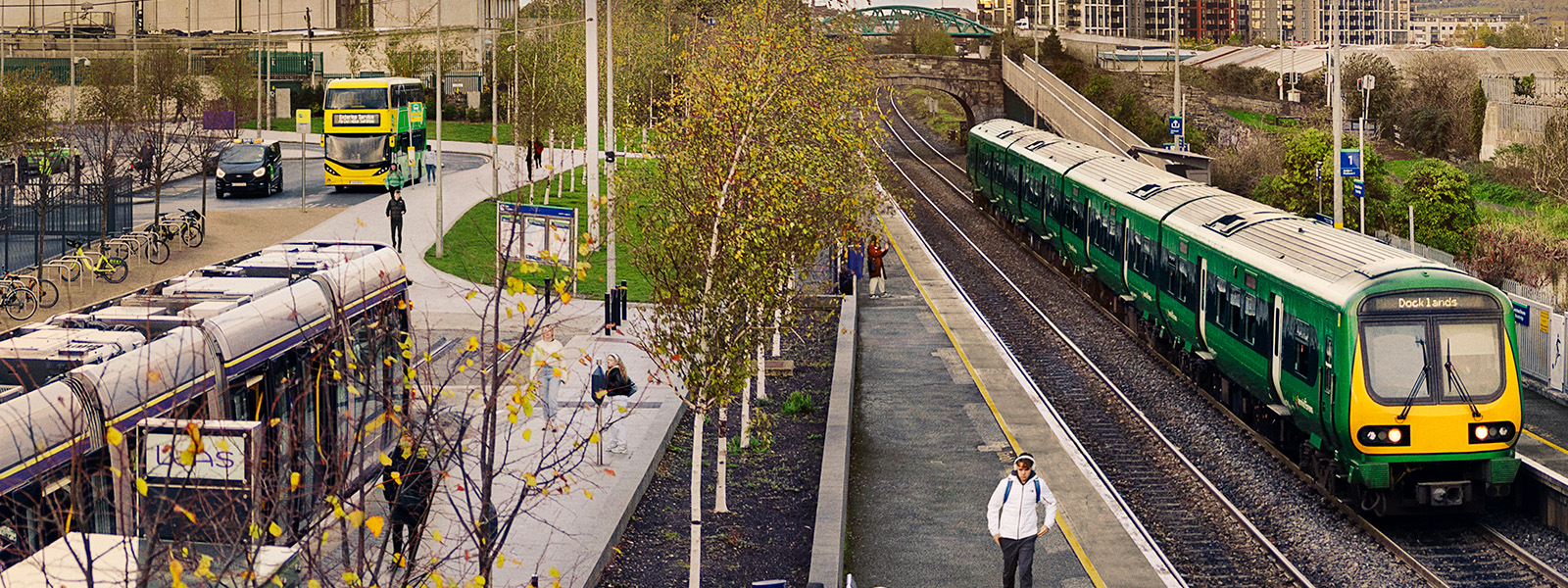All buses on commercial services could be required to be fully accessible by 2026 under a National Transport Authority (NTA) proposal published today.
Proposals contained in the “Consultation on potential changes to the licence conditions for public bus passenger services with regard to accessibility”, if implemented as outlined, would mean that all vehicles would have to be low-floor wheelchair accessible buses by 2026.
Stakeholders including representatives of people with disabilities, bus operators and members of the public are being invited to make submissions to the NTA on the plans.
The proposals refer to licensed regular commercial bus services, as opposed to Public Service Obligation (PSO) services subsidised by the NTA.
Under the plans, all vehicles used to provide urban or rural regular public bus passenger services would be low-floor, wheelchair-accessible by end of 2023. This would be phased in over four years from 2020. Licences for services that have not reached a verifiable 75% accessibility standard by the end of year three would not be renewed.
All vehicles used to provide interurban regular services would also be required to be low-floor, fully accessible buses by 2026, although that transition could be completed as early as 2023. Licences for services that have not reached the accessibility standard within the time frame would not be renewed.
In addition, all vehicles providing commercial regular services would be required to have visual and aural ‘next stop’ announcements by the end of 2023.
The NTA is the statutory body responsible for regulating the licensed commercial bus services sector under the Public Transport Regulation Act, 2009. This Act empowers the Authority to establish licence categories and to attach minimum accessibility standards as a condition of the licence.
In 2014, the NTA carried out a public consultation to assess stakeholder and operator attitudes on transitioning to a wheelchair-accessible licensed bus sector. There were a number of recurring themes across the responses received including maximising the use of low-floor buses on regular urban, suburban, commuter and rural licensed services, as well as a phased approach to accessibility.
Following on from this, the NTA conducted a Regulatory Impact Assessment (RIA) investigating different options for the phased implementation of accessibility and the potential impacts associated with these different options on the stakeholders involved.
With this in mind, the NTA is now conducting a public consultation process, seeking feedback from stakeholders and operators on proposals on improving accessibility to licensed bus services and the cost involved in the options set out in the RIA.
Anne Graham, Chief Executive Officer of the NTA said:
“The Authority is committed to improving accessibility to transport, in particular, for people with reduced mobility. This commitment is reflected in the Authority’s Statement of Strategy 2018-2022, in which we have undertaken to ‘Develop an efficient, effective and safe transport system so that most people, including those with a disability or mobility impairment, are within easy reach of a reliable public transport service’.
The proposals we are putting forward today represent a significant step forward for accessibility on public transport services.
Under these plans, we will be going far beyond what is laid out under EU transport accessibility guidelines, which will put us to the fore among our EU partners.
We look forward to hearing the views of people with a disability; other bus customers; and of course the industry itself.”
